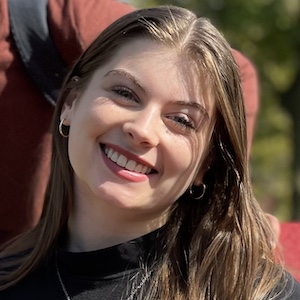
Like many 19-year-olds, I’ve never had a great understanding of health insurance because my parents always handled it. My dad and I got health insurance through my mom’s job, but in the spring of 2023, my mom was looking to retire, which meant a loss of health coverage. My mom was eligible for Medicare, but my dad was not old enough, and I certainly wasn’t, so it was time to look for alternatives, and we headed to the health insurance marketplace. My dad found a plan that worked for him, and it looked like I could be eligible for Medicaid. As a freshman in college whose only employed parent was about to retire, I figured it’d be best to try for Medicaid so I wouldn’t have to worry about paying. I didn’t know the first thing about applying, so my mom and I stopped at our local DHS office and were told we just had to fill out an application and drop it back off. That seemed easy enough! The confusion set in when I started filling out the form, though. I didn’t fully understand some of the questions, and it seemed like they were endless, but I did the best I could and dropped them off.
In a couple of weeks, I was notified that I was denied, but the reason listed in the letter was that I made too much money. The letter stated I was making thousands of dollars each month, which was far from the truth, so we stopped by the DHS office again. When I spoke to someone at the office, she told me that I was denied because, on the application, I answered that my parents would claim me as a dependent when filing their taxes. We decided in the office that it would be best for my parents not to claim me going forward; the caseworker told me to fill out another application and change that answer, and that should get me approved. I did exactly that but was denied again because the two applications were too close together with differing responses. After weeks of confusing communication, I sought help from my state representative’s office, and the constituent services staff was able to clear everything up using their connections. As it turns out, DHS had three cases open for me at once, confusing everyone involved. By August, I was finally approved and had no issues.
Throughout this process, my family had a running joke that I shouldn’t get sick or injured all summer. Thankfully, I stayed physically healthy all summer, but I would’ve benefited from mental healthcare during this time, and it wasn’t possible without some kind of health insurance. From April to August, my financial situation didn’t change, but my support and guidance through the process did. In other words, being approved or denied had more to do with my knowledge or help through the application process than my need for assistance. I was still in school and living on campus when I was filling out the first application; I had heard that there were people on campus who could help with these kinds of applications, but it’s not easy to find online and not many students on campus know about them. I probably could have avoided those months without coverage if I had been able to find benefits navigators on campus.
